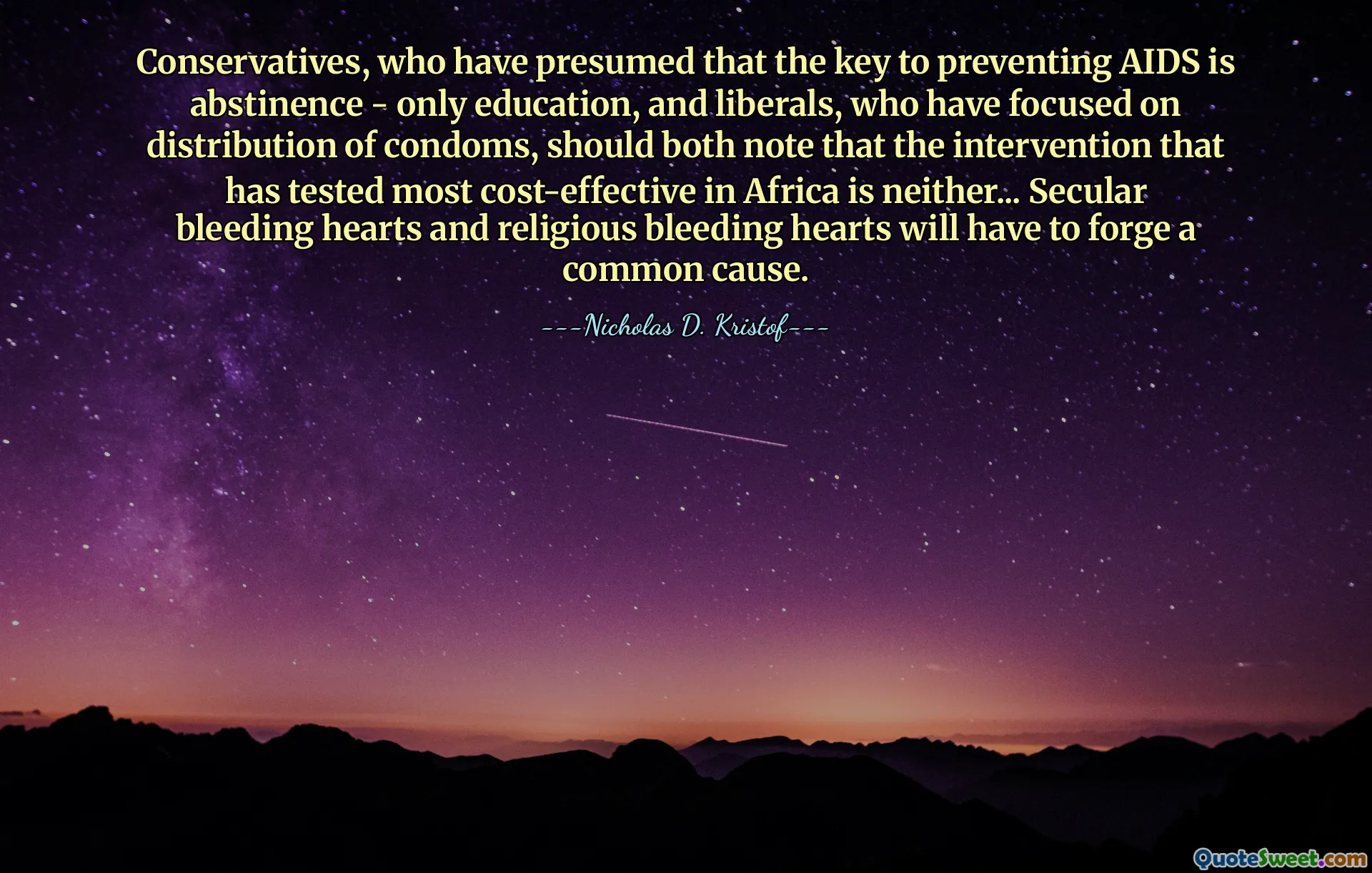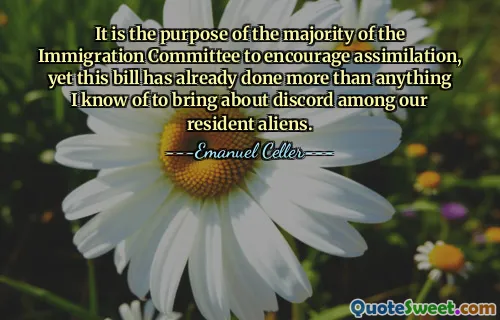
Conservatives, who have presumed that the key to preventing AIDS is abstinence - only education, and liberals, who have focused on distribution of condoms, should both note that the intervention that has tested most cost-effective in Africa is neither... Secular bleeding hearts and religious bleeding hearts will have to forge a common cause.
This quote by Nicholas D. Kristof presents a provocative examination of the common approaches taken by different ideological groups toward combating AIDS prevention in Africa. It draws attention to the often rigid perspectives that conservatives and liberals hold—the former emphasizing abstinence-only education, while the latter focuses on condom distribution. Kristof challenges both sides by highlighting that the most cost-effective intervention is neither of these, suggesting perhaps that there are alternative strategies that neither group has fully embraced or acknowledged.
What stands out most is the call for unity among seemingly opposing factions: "Secular bleeding hearts and religious bleeding hearts will have to forge a common cause." This statement underscores the necessity of collaboration and openness to diverse solutions when confronting complex global health crises. It points out that rigid adherence to ideology may impede progress and that innovative, context-sensitive approaches require cooperation beyond traditional divides.
This reflection resonates beyond the AIDS epidemic in Africa, serving as a metaphor for broader societal challenges where ideological polarization hampers effective problem-solving. It suggests that moral earnestness, whether rooted in secular humanism or religious conviction, can be a powerful force if leveraged together rather than at odds. Ultimately, Kristof advocates for pragmatic solutions driven by evidence and cost-effectiveness rather than ideological purity—a lesson that remains relevant in contemporary public health and global development discussions.











